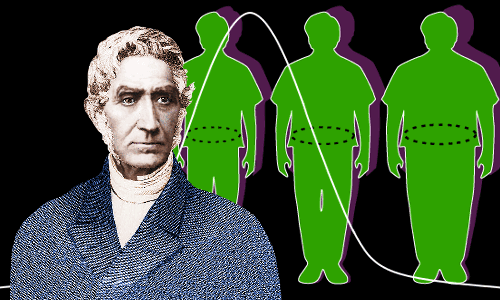Adolphe Quételet's Estimations
Quételet, the mathematician turned astronomer who was performing social physics miracles as the central figure of Belgium science, got better in his game by learning probability theory and making use of his polymath brain. His work included estimations and calculations using the available data and his mathematical and statistical skills. Instead of counting everyone to know the population, Quételet used some reasonable estimates and then multiplied the number of births per year with the ratio of the total population to the annual births.
The new methodology was published in Quételet’s books in the 19th century, like Social Physics (1835) and its newer editions, and caught the imagination of the public. Concepts like the Average Man and the Bell Curve (a normal probability of distribution) simplified complex statistics and made it accessible to the world while being easily quotable and comparable.
140
386 reads
CURATED FROM
IDEAS CURATED BY
The idea is part of this collection:
Learn more about problemsolving with this collection
Cultivating self-awareness and self-reflection
Prioritizing and setting boundaries for self-care
Practicing mindfulness and presence
Related collections
Read & Learn
20x Faster
without
deepstash
with
deepstash
with
deepstash
Personalized microlearning
—
100+ Learning Journeys
—
Access to 200,000+ ideas
—
Access to the mobile app
—
Unlimited idea saving
—
—
Unlimited history
—
—
Unlimited listening to ideas
—
—
Downloading & offline access
—
—
Supercharge your mind with one idea per day
Enter your email and spend 1 minute every day to learn something new.
I agree to receive email updates
